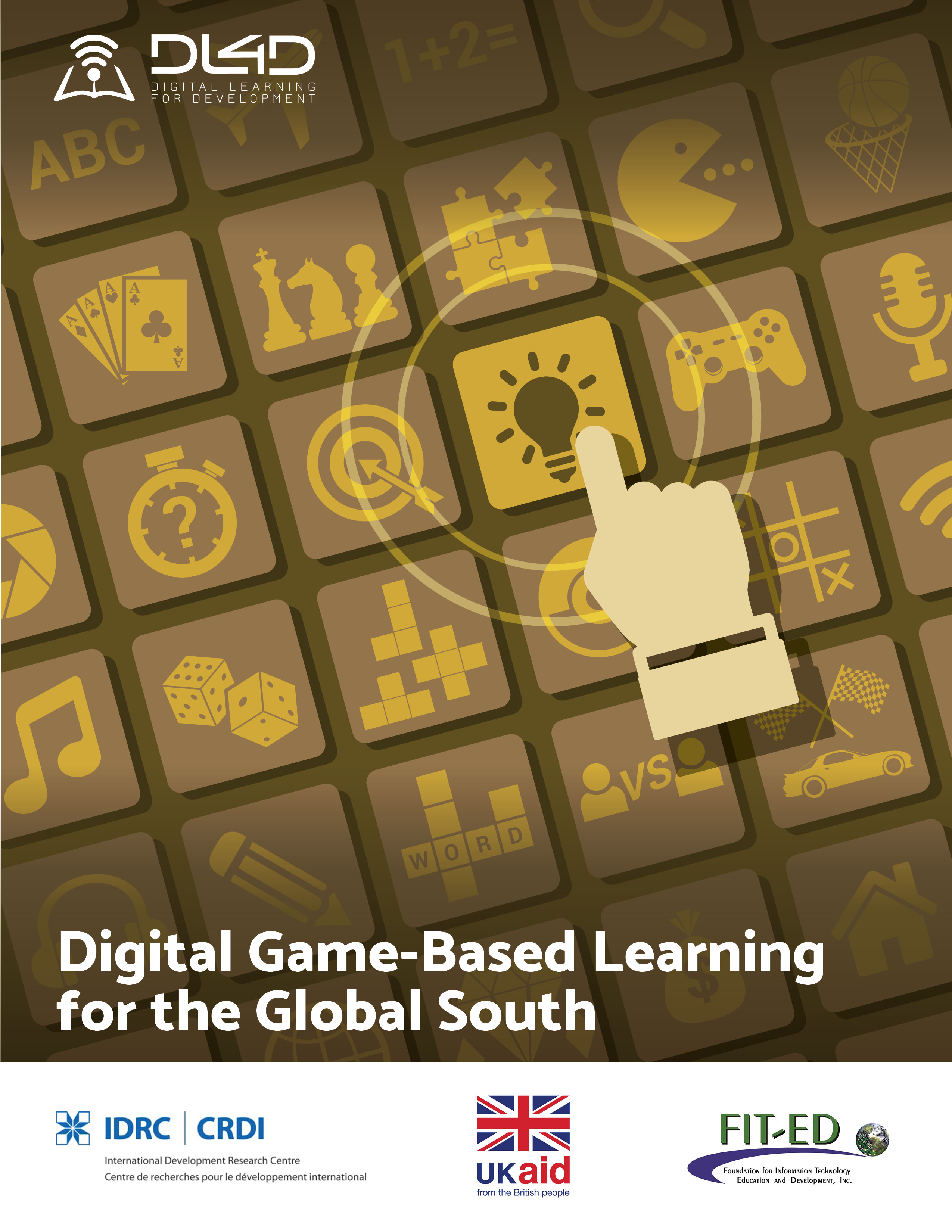Digital Game-Based Learning for the Global South
Abstract
Digital Game-Based Learning for the Global South
Digital Game-Based Learning for the Global South

Over the past two years, DL4D has brought together leading international and regional scholars and practitioners to critically assess the potentials, prospects, challenges, and future directions for the Global South in key areas of interest around digital learning. It commissioned discussion papers for each of these areas from leading experts in the field: Diana Laurillard of the University College London Institute of Education, for learning at scale; Dragan Gašević of the University of Edinburgh Moray House School of Education and School of Informatics, for learning analytics; and Chris Dede of Harvard University, for digital game-based learning, the subject of this compilation. Each discussion paper is complemented by responses from a developing country perspective by regional experts in Asia, Latin America, Africa, and the Middle East.
Digital Game-Based Learning for the Global South examines what role the use of digital games for learning can play to enhance educational quality, equity, and efficiency in Global South classrooms and other learning environments.
In the main paper, Chris Dede argues that while digital game-based learning (DGBL) is a proven educational innovation effective in the Global North, and is showing early promise in the Global South, conditions for success are quite different in the latter. Thus, the Global South cannot rely on hand-me-down games from the Global North to achieve its educational ends. He suggests that immediately building capacity on four dimensions–context-sensitive DGBL design; technology infrastructure; teacher competencies; and research–is essential. Farzana Ahmad and Chin-Chung Tsai, and Nedjma Koval-Saifi, engage with Dede’s assertions and suggestions from the perspective of South Asia and the MENA region, respectively.

